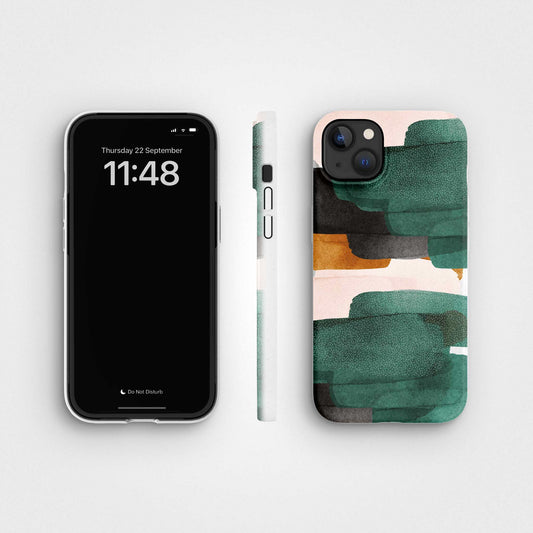Wenn Sie umweltfreundliche Entscheidungen in Betracht ziehen, ist es wichtig, die Bedeutung von Begriffen wie „biologisch abbaubar“ und „kompostierbar“ zu verstehen. Obwohl diese Begriffe oft synonym verwendet werden, um Materialien zu beschreiben, die im Laufe der Zeit zerfallen können, gibt es zwischen ihnen subtile Unterschiede. Beantworten wir zunächst die Frage: Was ist besser, ein biologisch abbaubares Produkt oder eines, das kompostierbar ist? Die kurze Antwort lautet: Das kompostierbare Produkt ist die bessere Wahl. Ein Produkt, das als natürlich und biologisch abbaubar vermarktet wird – wie Plastikmüllbeutel aus Zuckerrohr – ist möglicherweise keines von beidem; Vor allem, wenn es auf einer Mülldeponie landet, wo so gut wie nichts biologisch abbaubar ist.

Was macht etwas biologisch abbaubar?
Eine Möglichkeit zu definieren, ob etwas biologisch abbaubar ist, besteht darin, dass nach einigen Stoffwechsel- oder Enzymprozessen die molekulare Struktur dieses Dinges abgebaut werden kann. Das bedeutet, dass Mikroorganismen wie Bakterien oder Pilze das Material verstoffwechseln und in einfachere Stoffe umwandeln können. Es gibt keine Begrenzung hinsichtlich der Dauer des Prozesses oder der Restmenge, die nach Abschluss übrig bleibt. Der Zeitraum für den biologischen Abbau kann mehrere Tage bis hin zu Millionen von Jahren betragen.
Dinosaurier sind biologisch abbaubar. Dennoch stoßen wir von Zeit zu Zeit auf ihre Knochen. Wen wundert es denn, dass Archäologen beim Tunnelbau durch Mülldeponien (wir sprechen hier von einem Studienfach mit einer gewissen Arbeitsplatzsicherheit) oft 50 Jahre alte Zeitungen entdecken, die aussehen, als seien sie druckfrisch, und sogar Guacamole, die noch zum Verzehr geeignet ist ?
Nur weil etwas biologisch abbaubar ist, heißt das nicht, dass dies auch tatsächlich innerhalb einer angemessenen Zeitspanne der Fall sein wird.
Bedeutet biologisch abbaubar umweltfreundlich?
Der Begriff „biologisch abbaubar“ kann irreführend sein, da er suggeriert, dass ein Produkt auf natürliche Weise abbaubar und umweltfreundlich ist. Es stimmt, dass die meisten Dinge, insbesondere Zeitungen und Guacamole, mit der Zeit biologisch abgebaut werden, wenn sie offen liegen gelassen werden. Die Sonne und das Wetter werden die Zeitungen zerstören und ein Stamm wilder Nacho-Chips würde den Guac vernichten.

Aber selbst wenn Dinge, die angeblich „biologisch abbaubar“ sind, an die Öffentlichkeit gelangen, bewirken sie möglicherweise keine große schädigende Wirkung. „Biologisch abbaubare“ Plastiktüten werden oft als umweltfreundliche Lösung für die Plage der Plastikverschmutzung und -abfälle angepriesen. Aber schauen Sie sich das an: Selbst nach drei Jahren im Meer haben Wissenschaftler herausgefunden, dass Taschen, die als biologisch abbaubar gelten, immer noch eine Menge Lebensmittel enthalten können. Dies wirft einige Fragen zur Wirksamkeit dieser sogenannten biologisch abbaubaren Produkte auf und verdeutlicht die Mehrdeutigkeit des Begriffs.
Biologisch abbaubar ist definitiv ein unklarer Marketingbegriff mit viel Spielraum. Etwas kann umweltfreundlich klingen, ohne dass es nachweislich weniger schädlich für den Planeten ist.
Kurz gesagt, biologisch abbaubare Produkte sind wie pflanzliche Nahrungsergänzungsmittel – sie wurden nicht eingehend auf ihre angebliche Wirkung getestet.

Was ist kompostierbar?
Wenn Sie an einem Ort leben, an dem Blätter von Bäumen fallen, haben Sie möglicherweise irgendwann in Ihrem Leben einen Komposthaufen angelegt. Viele Menschen halten spezielle Behälter für Garten- und Lebensmittelabfälle bereit, die perfekt dazu geeignet sind, organisches Material abzubauen und in reichhaltigen Boden umzuwandeln, der gut für die Pflanzen ist. Unter normalen Bedingungen dauert es etwa 6 bis 12 Monate, um Blätter in Kompost zu verwandeln.
Theoretisch verhalten sich kompostierbare Produkte genauso. Sie sind für einen ähnlichen Prozess konzipiert und zerfallen in organische Stoffe, die zur Kompostproduktion beitragen können. Allerdings werden nicht alle kompostierbaren Produkte in einem Komposthaufen im Hinterhof kompostiert. Einige erfordern möglicherweise bestimmte Bedingungen oder Einrichtungen, wie z. B. industrielle Kompostieranlagen, um ordnungsgemäß zu zersetzen.
FAKT: Um als kompostierbar gekennzeichnet zu sein, können keine giftigen Materialien zurückbleiben, nachdem ein Artikel zerlegt wurde. Für Gegenstände, die als biologisch abbaubar gekennzeichnet sind, gilt diese Anforderung nicht.
Wenn Sie interessiert sind, können Sie sich unseren Leitfaden zur Kompostierung mit Catherine Cutler vom Eden Project ansehen.
Was macht ein Produkt kompostierbar?
Damit ein Produkt als „kompostierbar“ bezeichnet werden kann, müssen bestimmte rechtliche Verpflichtungen erfüllt sein. Dies ist normalerweise ein Rezept für die Art des Materials. Sie bestimmt die Zeitdauer, die für die Zersetzung benötigt wird, und die spezifischen Bedingungen, die für die Zersetzung erforderlich sind. Ein Beispiel ist ASTM D6868. Dabei handelt es sich um das Rezept, dem kompostierbare Verpackungen (einschließlich kunststoffbeschichtetem Papier und Karton) entsprechen müssen, wenn sie diese Zertifizierung aufweisen möchten.
Kompostierbare Produkte sind besser für die Umwelt, oder?
Ja und nein – es kommt darauf an. Einige „kompostierbare“ Dinge kompostieren möglicherweise nicht so, wie Sie denken (erinnern Sie sich an die Guacamole?). Wie bereits erwähnt, bestehen manchmal Anforderungen an das Kompostierungsrezept, die nur in industriellen Kompostieranlagen bestehen.
Schauen wir uns noch einmal die Blätter an. Mancherorts sammeln Kommunen eingesacktes Laub ein. Die Blätter werden zu Kompostanlagen transportiert, wo sie (zumindest für Blätter) nahezu industriell kompostiert werden. Diese Blätter erhalten mehr Aufmerksamkeit als der durchschnittliche Komposthaufen im Hinterhof und da der Prozess kontrollierter ist, wird ein gleichmäßigeres Ergebnis erzielt.
Ebenso sind viele kompostierbare Produkte – wie die meisten Biokunststoffe – so konstruiert, dass sie in einem kontrollierten Prozess, der speziell für diese Art kompostierbarer Abfälle entwickelt wurde, biologisch abbaubar oder kompostierbar sind.
Das hat zu Verwirrung geführt, aber die Dinge werden besser. In der EU können Produkte mit OK Compost Home (wie kompostierbaren Weizenstrohhalme und Bambusstrohhalme) oder OK Compost gekennzeichnet sein; Letzteres bedeutet, dass das Produkt zur Zersetzung eine kommerzielle oder kommunale Kompostierungsanlage benötigt.


Sind kompostierbare Kunststoffe recycelbar?
Ja aber. Oftmals können Biokunststoffe nicht mit anderen Kunststoffen recycelt werden – sie können Chargen von wiederverwertbarem Kunststoff ruinieren und das Produkt verschlechtern, bis es unbrauchbar wird.
Sind kompostierbare Kunststoffe besser für die Umwelt?
Auch hier kommt es darauf an. Ethylen, der Rohstoff für alle Verpackungskunststoffe, wird entweder aus Erdgas oder Rohöl gewonnen. Es dauerte Millionen von Jahren, bis sich diese Kohlenstoffquellen ansammelten, und sie sind nicht erneuerbar. Die Herstellung und Raffinierung von Ethylen erfordert enorme Energiemengen, die anderswo besser genutzt werden könnten.
Die Nutzung von Pflanzen als Kohlenstoffquelle für Biokunststoffe ist im Vergleich zu Erdöl oder Erdgas deutlich nachhaltiger. Pflanzliche Kunststoffe können CO2-negativ sein, was bedeutet, dass sie zur Reduzierung der Treibhausgasemissionen beitragen. Dies ist eine enorme Verbesserung, allerdings müssen sie immer noch ordnungsgemäß gesammelt und recycelt werden, um ihren Nutzen für die Umwelt zu maximieren.
Aber Plastik ist immer noch Plastik.

Plastikverschmutzung, sei es durch Tüten in Bäumen oder Mikroplastik in Wasser und Lebensmitteln, ist immer noch eine Umweltverschmutzung, unabhängig von der eigentlichen Quelle, und kann den Ökosystemen und sogar uns großen Schaden zufügen. Erfahren Sie mehr darüber , wie Kunststoff durch seine giftigen Chemikalien und seine langanhaltenden Auswirkungen auf die Umwelt Menschen schaden kann .
Letztendlich ist es wichtig, sich daran zu erinnern, dass unabhängig davon, ob ein Produkt biologisch abbaubar oder kompostierbar ist, die Reduzierung des Gesamtabfalls und der Verzicht auf Kunststoff, wann immer möglich, der beste Weg ist, wenn wir unsere Auswirkungen auf die Umwelt verringern wollen.
Entsorgen Sie die Dinge am richtigen Ort
In den tiefen, sauerstofffreien Gewässern des Schwarzen Meeres sind Holzschiffe, die vor Jahrtausenden gesunken sind, perfekt erhalten geblieben . Auf Mülldeponien eingesperrte Bananenschalen sind jahrzehntelang haltbar. Flaschen verwandeln sich in 20 bis 30 Jahren in Meerglas. Bäume verwandeln sich nach mehreren Millionen in Erdöl. Wie lange es dauert, bis etwas kaputt geht und was zurückbleibt, hängt von vielen verschiedenen Dingen ab.
Wenn es keinen Katalysator gibt, der die Veränderung in Gang setzt – Luft, Mikroben, Temperatur usw. – oder wenn etwas am falschen Ort entsorgt wird, können sogar Dinge aus natürlichen Materialien in der Umwelt verbleiben.
Machen Sie WENIGER Müll
Wenn Sie Ihren Abfall minimieren und nachhaltigere Praktiken anwenden möchten, gibt es mehrere Strategien, die Ihnen helfen können. Eines der Grundprinzipien besteht darin, von vornherein zu versuchen, WENIGER Müll zu produzieren. Dies kann durch Recycling (siehe „ Die Bedeutung des Recyclings“ oder „Vorteile des Recyclings “) , Upcycling ( 12 inspirierende Upcycling-Projekte, die Sie noch heute ausprobieren sollten oder „Der ultimative Leitfaden zum Upcycling “), durch Kreislaufmode und Kompostierung ( 8 Vorteile der Kompostierung ) erreicht werden.

Suchen Sie bei Ihren Einkäufen nach Alternativen zu Kunststoff und wählen Sie Produkte aus erkennbaren Materialien mit minimaler Verpackung. Die Entscheidung für wiederverwendbare Artikel wie Wasserflaschen aus Edelstahl , wiederverwendbares Bambusbesteck , Einkaufstaschen aus Stoff und Lebensmittelbehälter aus Glas kann unsere Abhängigkeit von Einwegplastik erheblich reduzieren und zu einem nachhaltigeren Lebensstil beitragen.
Weitere Informationen dazu, worauf Sie achten sollten, finden Sie in unserem Ratgeber zu Produkten, von denen Sie denken, dass sie kompostierbar sind, es aber nicht sind .


Hüten Sie sich vor Greenwashing: Fallen Sie nicht auf falsche Behauptungen herein
Wenn es um umweltfreundlichere Alternativen wie biologisch abbaubare oder kompostierbare Produkte geht, ist es auch wichtig, auf Greenwashing zu achten. Unter diesem Begriff versteht man die betrügerischen Praktiken einiger Unternehmen, um ihre Produkte umweltfreundlicher erscheinen zu lassen, als sie tatsächlich sind. Viele Produkte, die als biologisch abbaubar oder kompostierbar gekennzeichnet sind, werden ihren Ansprüchen möglicherweise nicht gerecht, was zu Verwirrung bei den Verbrauchern und potenziellen Schäden für die Umwelt führt. Es ist wichtig, über Schlagworte und Marketingaussagen hinauszuschauen und tiefer zu blicken, um die Authentizität der Umweltverträglichkeit eines Produkts zu überprüfen.
Verlässliche Zertifizierungen und transparente Informationen über den Lebenszyklus eines Produkts können dabei helfen, echte umweltfreundliche Optionen von Greenwashing-Versuchen zu unterscheiden. Die gute Nachricht ist, dass es eine zuverlässige Möglichkeit gibt, Unternehmen zu erkennen, denen der Planet wirklich am Herzen liegt: die hoch angesehene B Corp-Zertifizierung. Wenn Sie nach Unternehmen mit B-Corp-Zertifizierung suchen, können Sie sicher sein, dass sie gründlich bewertet wurden, um die strengsten Nachhaltigkeitsstandards zu erfüllen.

Die kompostierbare Handyhülle
Als wir unsere kreisförmigen mobilen Hüllen entworfen haben, haben wir darauf geachtet, dass sie kompostiert und sicher in die Biosphäre zurückgeführt werden können, aus der sie stammen (sie werden ja aus Pflanzen hergestellt), falls Sie sie nicht zum Recycling an uns zurückschicken möchten.





























